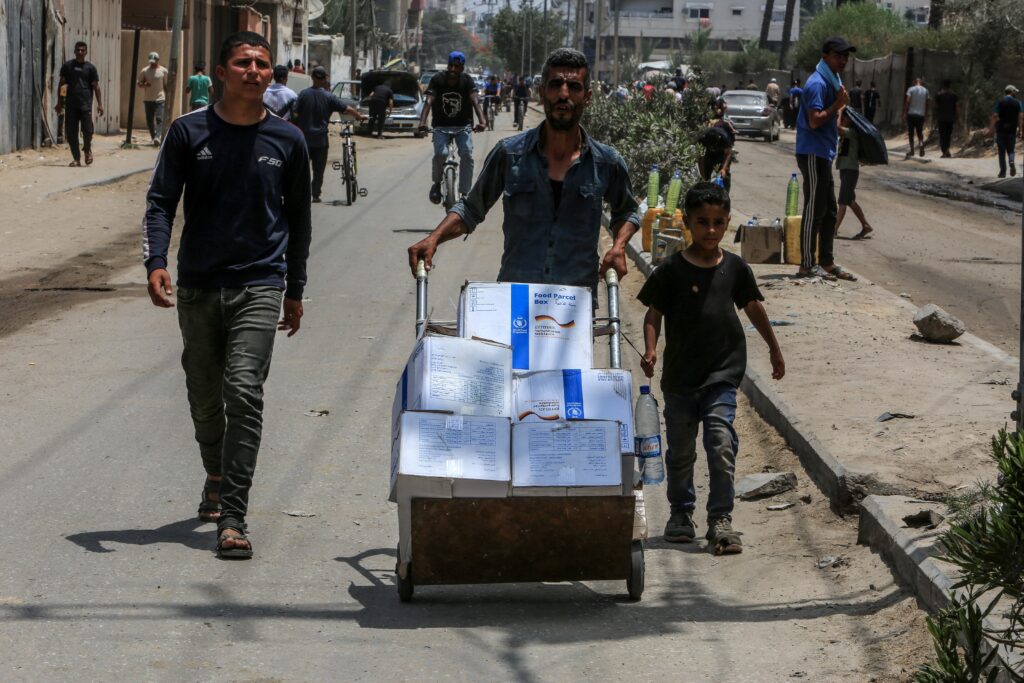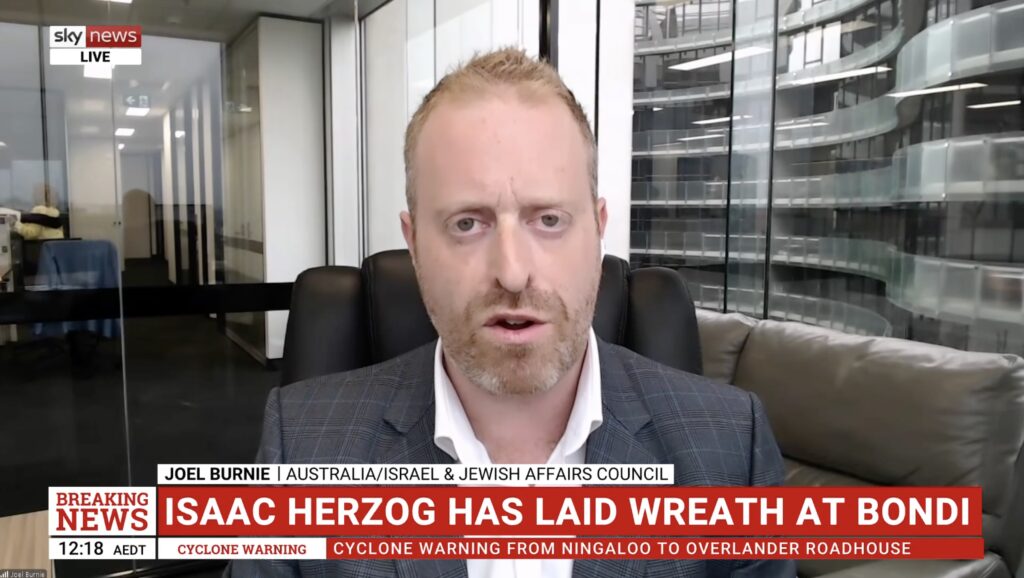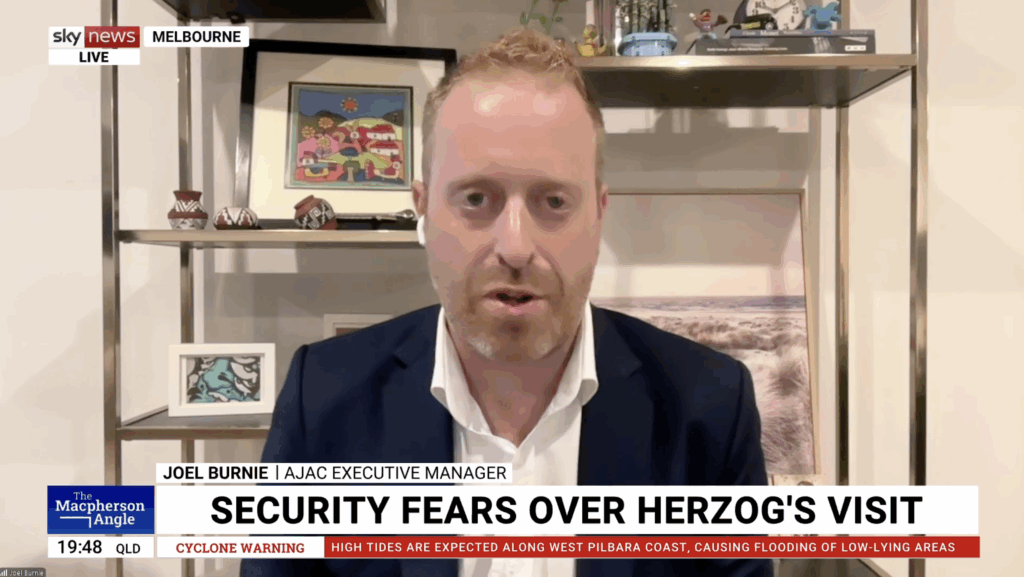IN THE MEDIA
East Jerusalem and semantic rabbit holes
June 18, 2014 | Glen Falkenstein

George Brandis made the right decision to not refer to east Jerusalem as “occupied”. Such loaded language would threaten Australia’s trade and cooperation with countries in the future, writes Glen Falkenstein.
ABC – The Drum
18 June 2014
http://www.abc.net.au/news/2014-06-18/falkenstein-east-jerusalem-and-semantic-rabbit-holes/5532644
In Through the Looking Glass, Humpty Dumpty told Alice “when I use a word, it means just what I choose it to mean – neither more nor less.” Alice retorted: “The question is, whether you can make words mean so many different things.”
More than 140 years after Lewis Carroll’s masterpiece was published, the meaning and correct use of words continue to be disputed – with the ongoing dispute over east Jerusalem taking a semantic and very public turn earlier this month in the Australian Senate.
During Senate Estimates, Commonwealth Attorney-General George Brandis responded to questions put to him by Senator Lee Rhiannon by stating that “the Australian Government does not refer to east Jerusalem by the descriptor ‘occupied east Jerusalem’, we speak of east Jerusalem.”
He went on to say the Government believed the term “occupied” has “pejorative implications” that were “neither appropriate nor useful”. Brandis’s stance was later backed up by Prime Minister Tony Abbott and Foreign Minister Julie Bishop.
Both Brandis and Rhiannon acknowledged that the term has become quite commonly used; but saying something loudly and a lot doesn’t make it right.
In 1948 Jordan invaded east Jerusalem as part of hostile aggression to overturn a UN plan to partition the British Mandate of Palestine into two states, one Jewish and one Arab. Jordan captured and held east Jerusalem, with the rest of the West Bank, until 1967, when it attacked Israel – as part of a larger war with Syria and Egypt – and as a result lost control of this land. In 1988, Jordan renounced any claim to the area.
Israel formally annexed east Jerusalem in 1980. This is an area that includes the Old City of Jerusalem, including the Western Wall and the Jewish Quarter, where a sizeable Jewish population has existed for thousands of years.
Both treaty language and academic opinion make it clear that the term “occupation” in international law refers to the control by one country of the sovereign territory of another. East Jerusalem has never been the sovereign territory of a Palestinian state and Jordan has renounced any claim to sovereignty. Therefore, it makes no sense to call this area “occupied” when the alleged “occupier” has at least as much claim to it as anyone else.
Of course, it is commonly accepted, including by successive Israeli governments, that most of the Palestinian-inhabited land captured in 1967 will and should be relinquished by Israel to form a Palestinian state in a final peace deal. However, use of the term “occupied” to describe contested areas is both counterproductive and prejudicial, given the facts on the ground and prevalent international law.
Brandis, as Australia’s chief legal officer, was doing his job by recognising the legal reality and refusing to allow Australia to be party to “Carroll-esque” debates concerning loaded and inaccurate terminology.
Nor was this a shift in Australian foreign policy, as some media reports would lead one to believe. A search of public statements by past governments, both Labor and Coalition, reveal it is not in fact traditional for the Australian Government to use the term “occupied” to describe east Jerusalem. (See also here, here and here.) Instead, less inflammatory language has almost always been used.
The clarifications made by the Attorney-General should allow all disputed issues to be discussed and negotiated.
This is consistent with Australia’s treatment of other disputed territories around the world, with the Government opting to refer to them as “disputed” rather than occupied, seeking to avoid injecting more heat into bilateral hotspots.
For instance, following the recent trade agreement with Japan, Australia, while raising concerns regarding the territorial dispute between China and Japan over the islands referred to as both the Senkaku and Diaoyu Islands, avoided the use of inflammatory language so as to avoid either alienating or angering either side.
Use of language referring to the islands as “occupied” would not only have undermined trade and cooperation with either or both powers, but detracted from Australia’s ability to communicate or mediate with China and Japan on this and other issues essential to trilateral relations.
Perhaps it is with this in mind that Brandis referred to the disputed territory of east Jerusalem.
Australia has both vibrant Israeli/Jewish and Palestinian communities, and maintains important trade links with both Palestinian and Israeli industry. Why would you not want to maintain a realistic and logical approach to contentious areas, and maximise communication with all sides to effectively promote efforts to achieve a viable two-state solution, a stated bipartisan goal?
The clarifications made by the Attorney-General should allow all disputed issues to be discussed and negotiated. It certainly does not endorse Israel’s 1980 annexation of the area any more than it endorses the Palestinian claim that the territory should all rightfully be part of their future state.
Moreover, leaders in the Palestinian National Authority have already conceded that land swaps will alter the armistice lines that constituted the border before 1967.
If Australia seeks to play a part in encouraging a final peace deal, it is obvious that the Government has adopted a practical approach to these issues, by allowing them to be debated, deliberated and negotiated between the parties.
Like in Carroll’s classics, debates about the Middle East reveal innumerable instances where meanings are ascribed to things that have little basis in reality – but there is no reason the Australian government needs to buy into these labels.
Sometimes you have to call a spade a spade, but when you’re unsure, or it’s clearly something else, calling it a spade just means you’re digging yourself a hole.
Glen Falkenstein is a policy analyst and staff writer at the Australia/Israel & Jewish Affairs Council (AIJAC).
Tags: Australasia





